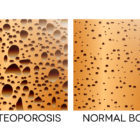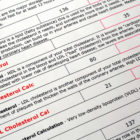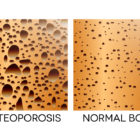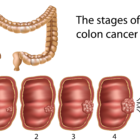25
Sep
in BRCA, Breast Cancer, Cancer, cholesterol, General Health, Heart Attack, Heart Disease, High Blood Pressure
no Comments
No one wants to go to the doctor. It takes time, it is not pleasant, and sometimes the procedures can be painful, but the benefits outweigh the negatives. Last time I shared with you some exams and measurements to keep you health. Today I’d like to share with you part two of my health optimizers to fine-tune your body: blood tests and age-specific tests.
Blood Tests:
- Blood Sugar –Do you know that there are 50 million people in the United States that have pre-diabetes? Pre-diabetes is a condition where the blood sugar is too high to be normal, but not yet high enough to be called diabetes. It is this period of time –blood sugars between 100 and 125mg/dl that we have the best chance of finding this problem and reversing it before it turns in to diabetes.
- Blood Cholesterol & lipid panel –Cholesterol and the lipid panel tests such as the HDL (good cholesterol) and LDL (bad cholesterol) are all a part of a portfolio of blood tests that show whether you are at risk of heart disease. Increased cholesterol and lipids in the blood can cause an increased risk of plaque in the arteries that can lead to heart disease, hardening of the arteries and increase the risk of a heart attack or stroke. This is another silent problem that can be easily corrected if you get the right tests done.
- Thyroid Disease –Thyroid hormone can be either too high or too low, and either one causes a great deal of problems. As many as 5% of people, particularly females, have thyroid problems at some point in their lives. If you know you have a thyroid problem, and you are taking thyroid medication, other medicines you take –particularly hormones –can interfere with the amount of thyroid hormone you need to keep the values normal.
Age Specific Tests:
- Bone Density –Hip fractures and bone fractures are a major problem in the US. It’s estimated that approximately 20 million people now already have osteoporosis, and that number is expected to increase to as many as 50 million people over the next few decades.
- Colonoscopy –Colon cancer is the second leading cause of death from cancer in the United States in both men and women. The good thing about colon cancer is that it is preventable. Usually colon cancer starts as a premalignant liaison and a little fleshy tumor called a polyp. This little growth can be seen easily on a colonoscopy, and if you identify it at this stage, it can be removed and completely diminish your chances of it turning in to cancer.
- Mammogram – For women, the test should usually be performed at age forty, but for women who have a family history might want to get checked at age thirty. Even more serious, if you test positive for the cancer gene BRCA, you should get it done around age 25 or even earlier. For men, if you have a family history of breast cancer, you may also be at risk of breast cancer. By that I mean, if you have a family member –mother or father – or a strong family history, and they are positive for the BRCA gene, then you should also have a blood test for breast cancer, because if it is positive in the men, they are at higher risk for having breast cancer and prostate cancer. It would be advised then to get earlier and more frequent mammograms and prostate checks.
Until next time,
Dr. Mache Seibel, Founder of My Menopause Magazine http://bit.ly/MyMenoMag
Professor, University of Massachusetts Medical School
(617) 916-1880
PS: Find more information of this type in My Menopause Magazine, available for the iPad and iPhone in the Apple Newsstand. http://bit.ly/MyMenoMag
* Please Like and share with your friends.






